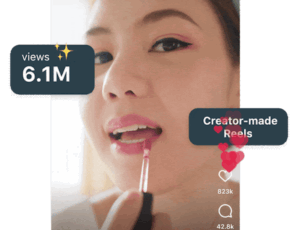The data-driven ad industry has begun to collapse the mental barrier between brand and performance marketing.
Next up is PR.
The content and ad network Linkby, an Australian startup founded in 2020, connects brands with what the company deems “performance-based editorial,” per the announcement – or, in other words, publisher content that advertisers pay for based on reader engagement.
On Tuesday, Linkby announced that it raised $15 million in Series B funding, backed by growth equity firm Volition Capital.
PR is often seen as a top-of-the-funnel ad strategy far removed from driving sales, Chris Wirasinha, co-founder and CEO of Linkby, told AdExchanger. But Linkby hopes to change that by funding editorial content that brands can measure and “actually track all the way to conversions on their website,” he said.
A rose by any other name
If “performance-based editorial” sounds an awful lot like sponsored content to you, well … you’re not wrong. The distinction between performance editorial and sponsored posts “depends on people’s definition,” Wirasinha said.
“For me, sponsored content is where the brand has direct influence over what is being written,” he added.
Fair enough: Linkby’s model instead operates more like “traditional PR,” he said, where publishers control the angle and bring their own style and humor to the post. Publishers only make revisions at the brand’s request if the editorial included a factual error.
While brands don’t have much say in the style and content of the post, Linkby does allow a say in choosing the form of content, like a product review or coverage of a news story or promotion.
With those content options in place and better marketing analytics, Linkby provides “a lot more control from the brand side,” said Annabelle Close, head of affiliate at sex toy brand Lelo, one of Linkby’s clients.
AdExchanger Daily
Get our editors’ roundup delivered to your inbox every weekday.
Daily Roundup
In June, Lelo saw a 242% ROAS bump during a pride month campaign it distributed with Linkby and the online publisher Women’s Health.
With its latest round of funding, Wirasinha said, Linkby plans to expand its go-to-market team in the US, develop its AI optimization tools for better visibility into LLM-based searches and expand the engineering team working on the company’s recommendation engine.
Slow and steady
Many affiliate strategies tend toward long-term SEO strategies, according to Wirasinha. But these SEO tactics are “under threat now more than ever.”
And it’s become more difficult to target specific types of media or news interests on social media. With Linkby, he said, there is an opportunity for brands that “are trying to maximize their coverage across a specific story.”
This format also benefits publishers, he said, since the payment model is based on engagement, not a downstream transaction or download. These stories typically have “a shorter lifespan,” especially if they’re about a live news promotion. But they can get many views in that window.
Publisher traffic and revenue is declining, corresponding to the rise of generative AI search answers. So publishers want reliability above all else from their revenue streams. It’s an expensive and unpredictable time to be a publisher, said Close, and publishers need to feel “more protected.”
Linkby’s cost-per-click model, rather than a higher-stakes cost-per-acquisition model, is gaining traction, she said of the sex toy manufacturer’s ad incentive deals. “If we offer them a really high CPA and we offer them an average CPC, nine times out of 10, they’re still going to take CPC.”
There’s a flat fee model either way, she said, “but you’re paying for engagement, rather than conversion, which incentivizes the publisher to write engaging content.”
Content production and editorial strategy are particularly valuable for Lelo, said Close, since the brand is both “deeply personal” and heavily restricted in advertising.
The sex toy company is restricted from all Meta properties and has struggled to find success on TikTok. Instead, YouTube and “straight to dot-com” have proven most successful.
Investing in creators, she said, helps not just with brand awareness but with building customer relationships. “People feel like they know who our brand is,” Close said, almost as its own person with its own voice.
Brands have to play the long game when it comes to editorial; there’s no immediate turnaround in sales. But it builds community and mitigates risk, she said, which is “what really makes affiliate so special.”














